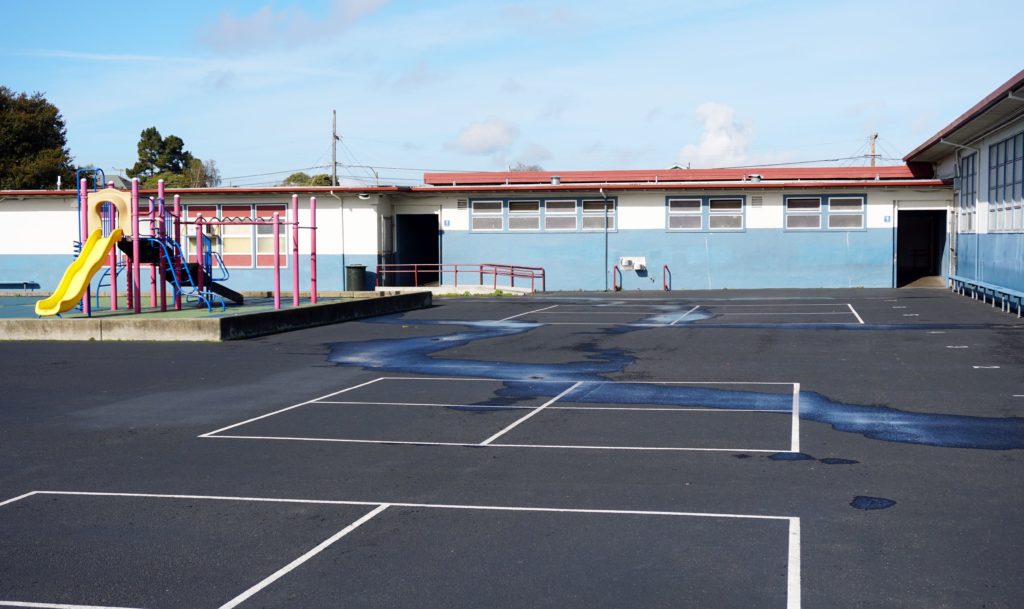
Sacramento westlake Neighborhood
Credit: Aiden Frazier / UnSplash
A late-session strategy by Democrats in the California Legislature to sabotage a tax-limitation initiative may determine whether citizen groups can propose a school parcel tax requiring only a majority of voters to pass.
The anti-tax initiative, called the Tax Protection and Government Accountability Act and organized by the California Business Roundtable and the anti-tax Howard Jarvis Taxpayers Association, has already qualified for the November 2024 election ballot. Among its provisions would be an expanded definition of taxes to include some revenue sources that state and local governments consider fees, thus making them harder to impose. And it would require all local special taxes — those passed to fund specific purposes, as opposed to general taxes, like sales and income taxes — to require a two-thirds majority to pass.
The initiative is partly aimed at school parcel taxes which, under a 1996 state ballot proposition, are considered special taxes, subject to the two-thirds vote majority. That’s a high threshold, which is why only about 1 in 8 school districts have passed a parcel tax, and only about 60% of the parcel taxes proposed historically have passed, according to Ed-Data. Many districts looked at the barrier and decided the odds of failure were too big to try.
Over the past two decades, two Bay Area state senators proposed lowering the threshold for passing a parcel tax to 55%, the same requirement for passing school construction bonds. But they couldn’t come up with the two-thirds majority in the Legislature needed to place a constitutional amendment on a state ballot. An analysis in 2019 by Michael Coleman, the creator of California Local Government Finance Almanac, found that historically 91% of parcel tax ballot measures would have passed, had the 55% threshold been in effect.
But two years ago, in a decision on a San Francisco ballot measure, a three-judge panel on the San Francisco-based California Court of Appeal unanimously ruled that a parcel tax initiated by citizens — and not put on the ballot by school boards and other government bodies — requires only a simple majority of 50% plus one vote for passage. The state Supreme Court declined to hear the case, leaving the appeals court ruling as the guiding decision.
“The two-thirds majority requirement only benefited wealthy communities that could afford well-funded campaigns,” said Carol Kocivar, a former president of the California State PTA and a frequent contributor to the parent education website Ed-100. “It’s a question of equity, to let voters speak by a majority vote on initiatives brought by the people, not by government.”
However, the victory in court could be short-lived if the Howard Jarvis-Business Roundtable initiative passes in 2024. It would overrule the court decision and require a two-thirds vote for special taxes without exception.
Enter the Democratic lawmakers. Assembly Constitutional Amendment 13, passed in the last week of the legislative session, is written to make the Tax Protection and Government Accountability Act harder to pass. It says that any state ballot measure put on the ballot after Jan. 1, 2024, that would raise the voter threshold for passing taxes would require the same proportion of voters to enact it.
In other words, an initiative raising all special taxes to a two-thirds threshold would need the authorization of two-thirds of voters. That could be hard to get in a tax-liberal state like California. Dozens of labor unions, including the California Teachers Association, and city and county governments supported the legislation.
Jon Coupal, president of the Howard Jarvis group, called ACA 13 “a dagger at the heart” of the initiative and a “cynical attack” on the initiative process that is “too clever by half.”
Assemblymember Christopher Ward, D-San Diego, called it a “common sense measure” to counter a system that allowed a simple majority of voters to impose on future voters a higher threshold to raise revenue.
But Coupal responded that every ballot measure changing the California Constitution has required only a majority vote, including the landmark Proposition 13 in 1978, which requires two-thirds approval of the Legislature for future state tax increases.
Supporters of ACA 13 assert that its provision would take priority, though Coupal disputes that. It’s possible that if both ballot measures pass, the one with the most votes would govern the outcome; based on its polling, Coupal said he is confident that his initiative would prevail.
For cash-strapped districts, a parcel tax subject to a majority vote could be a major boon. With state revenues projected to fall in districts with declining enrollments and an end by Jan. 1, 2025, of the availability of federal Covid assistance, Kocivar expects more districts will take advantage of the option. And the proposed uses for the extra funding might change to better reflect what parents and the community view as priorities. Proponents would still need to gather enough signatures to place an initiative on the ballot — a significant challenge — but qualifying would signal popular support, she said.
Another challenge is the nature of a parcel tax. Because of the provisions of the 1978 anti-tax initiative Proposition 13, the amount of a parcel tax must be uniform and cannot be based on a property’s value. The owner of a mobile home and a 10-bedroom mansion both pay the same amount, from about $100 per year in many districts to upwards of $1,000 annually in wealthy communities. Some recent parcel taxes charge by the square footage of a home or building, generally making it less regressive.
For now, local teachers and parent groups should keep plans for lower threshold parcel taxes in their back pockets until it’s clear that the 2021 Court of Appeal’s decision will prevail.





